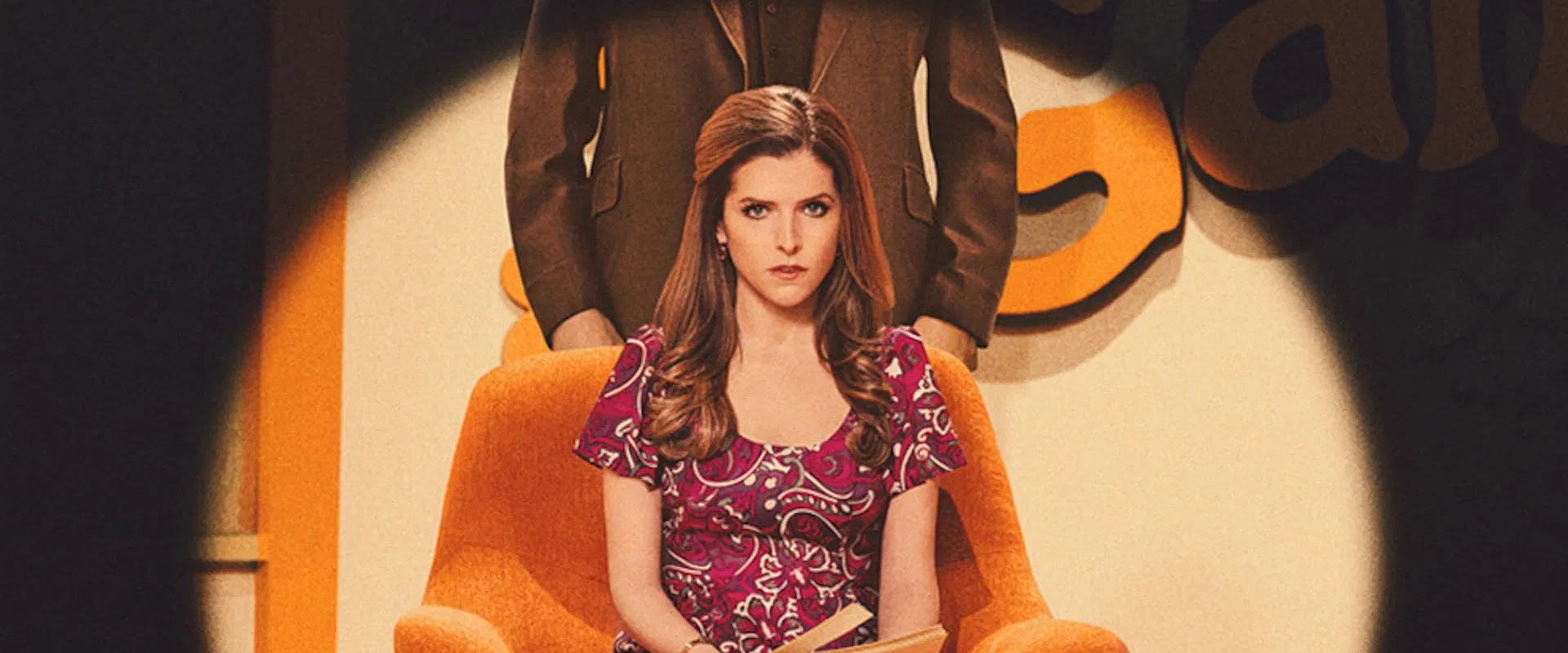“Woman of the Hour” tries to do the near-impossible: juggle the grubby spectacle of 1970s television, the queasy horror of a serial killer stalking the vulnerable margins of American womanhood, and the exhausted genre reflexes of true-crime drama—all in a scant hundred minutes, and as Anna Kendrick’s directorial debut, no less. The result, I’m afraid, is something like a psychological profile by way of a production meeting: just enough distress and commentary to call itself “important,” but too unsure of its identity to settle into anything worth remembering.
Let’s begin at the center, such as it is. The story of Rodney Alcala, the “Dating Game Killer,” is one of those scraps of tabloid Americana that anybody with an ounce of morbid curiosity—or a Netflix queue—already half-knows: a grinning bachelor gliding through prime-time, competing for the affections of a wary but game aspiring actress (Kendrick’s Sheryl Bradshaw), all while hiding enough malice and necrosis under his mustache to make Ted Bundy seem like a Rotary Club president. What might have been, in another filmmaker’s hands, a gleefully tawdry dissection of American sexual paranoia and the clownish superficiality of network television, is here treated as a thriller with a social conscience—except the movie can’t quite decide what, or who, it’s most afraid of: the man, the misogynist machinery, or the lurking audience with blood in its mouth.
The script, which bounces clumsily around Alcala’s years of predation and Bradshaw’s initiatory shames in Hollywood, never finds its rhythm. Structurally, this is a film with a first act that stretches on like a bad date, a third act that pounces with belated urgency, and a missing middle—no second act, only a gaping vacancy where development, suspense, or even narrative curiosity should be. Instead, we get misfired attempts at message, clumsy thematic neon: “Do you SEE how the system failed? Do you FEEL how women are not believed?!” It doesn’t so much dramatize as shout from the edges of its own nervous breakdown.
Kendrick herself gives a performance of genuine comic timing and wariness—her Sheryl is smart, prickly, and arch when the script allows, and occasionally the movie flirts with being the darkly comic horror-comedy that you sense Kendrick herself would kill to make. But neither she, nor Daniel Zovatto’s Alcala (whose moments of reptilian dread come in flashes—particularly the rightly praised parking lot set piece, which is the lone bit of showmanship here), can rescue a film so hesitant to define itself. The direction is competent, sometimes nervy in its willingness to let danger linger at the edge of the frame, but always boxed in by the same problem—the movie never sticks with the women long enough to become their story, nor does it plumb the killer’s psyche with the courage or depth that would make this anything more than an After-School Special for genre masochists.
And the “Dating Game” device—surely, one of the weirdest and most revealing artifacts of pre-Thatcherite American culture, where loathsomeness and sexual resentment are lacquered with canned laughs—ought to have been the film’s great satirical engine. But Kendrick, or her screenwriter, can’t quite bring themselves to let the episode boil over into the Black Mass it really was. What we get instead is a series of uneasy feints: the game show sets look marvelous in orange and avocado green, but the thematic connection between spectacle, victimhood, and violence, is never made. We are stuck on the fringe, with the camera strategically averting its eyes just when things threaten to get lewd, or trashy, or true. Even the most damning elements—the moronic producers, the indifferent police, the social swirl that renders every woman a potential corpse-in-waiting—are sketched, then forgotten.
In the end, the film tries to hedge its bets: do we dwell on the “why” of Alcala, the slow-drip trauma of the women, or the America that built the stage for both? (A bolder film chooses. This one dithers.) The effect is of a timid shuffle through the dossiers of history, wrapped in the manufactured seriousness that streaming true crime now invites. You feel the potential—it’s there in the lighting, in the bravado parking-lot choreography, in the brief stabs of acidic humor—but the film won’t stop underlining its own worthiness long enough to earn it.
A mediocre debut, and a footnote to the endless, unwinnable contest between victim and victimizer, showbiz and carnage, that American movies are destined to play out. If Kendrick wants to terrorize us, or amuse us, I beg her to pick a side.


